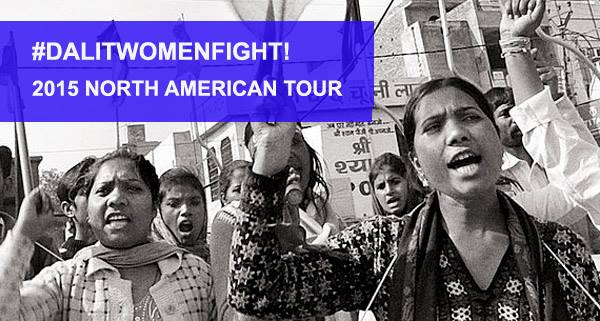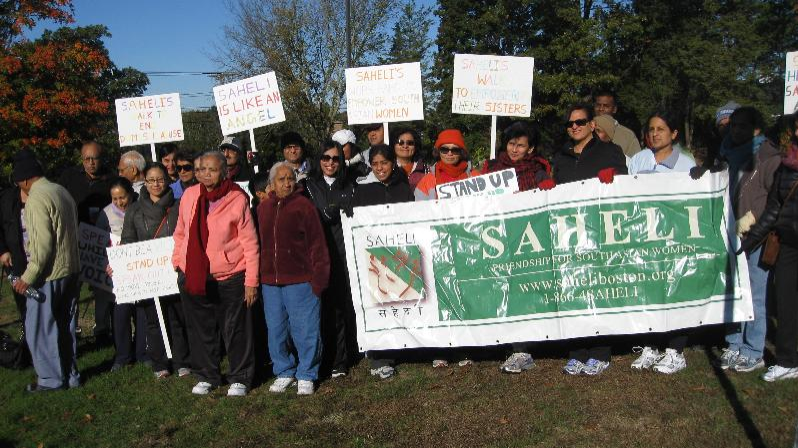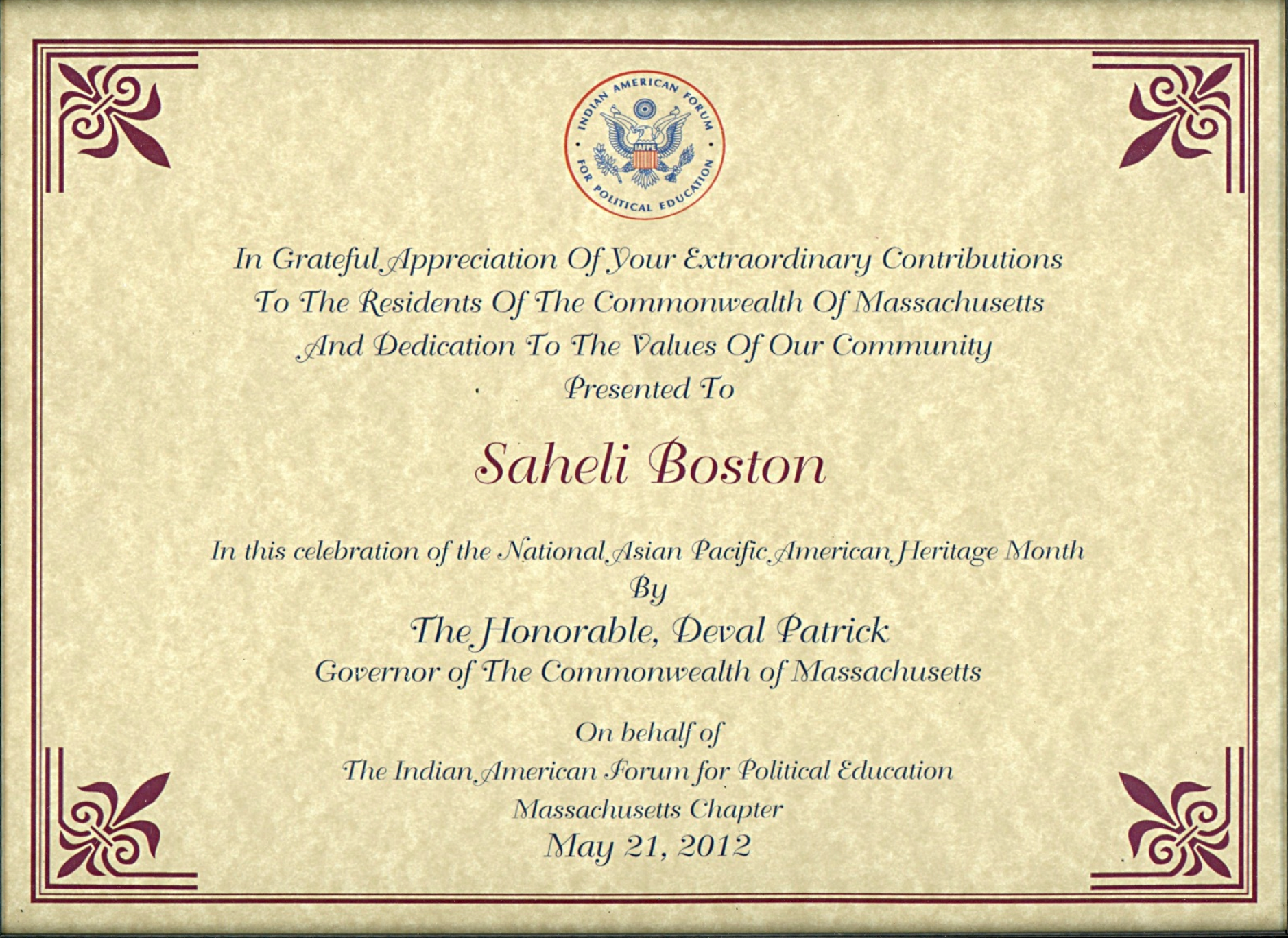By Uma Venkatraman, Saheli Volunteer
On Saturday, September 19th, #DalitWomenFight, an international campaign to end caste-based sexualized violence that is led and organized by Dalit women, arrived in Boston as part of their national tour. The event was held in Encuentro 5, a community space in downtown Boston, and involved a panel discussion highlighting the stories of Dalit activists and other women of color organizers from Boston. The Dalit activists, Asha Kowtal, Vee Kay, Manisha Mashaal, and Anjum Singh, were all present as part of the Dalit Women Fight Collective and they shared a panel with activists Yamila Shannan, Nina LaNegra, and Brandi Artez from Boston.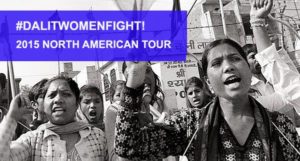
Over the course of two months, the campaign organizers visited over nine cities in various states including New York, Washington, and California. In each city, Dalit women organizers spoke in conversation with other women of color organizers and called out global oppression and violence against Dalit women. Additionally, the panel highlighted the ongoing organizing and resistance of Dalit women. In the words of the organizers, “We Dalit women are organizing ourselves to reclaim our lives and dignity. We are resisting. We are fighting. Join us in dreaming of a gender just world by breaking caste and patriarchy.” The organizers also shared their vision to “bring caste based sexual violence to the forefront of South Asian diasporic resistance and hold perpetrators accountable for caste based sexual violence” (all quotations from their facebook page found here).
The word “Dalit” has a contentious and violent history. Vee Kay explained that the idea of caste stemmed from the Rig Veda where Brahmins (who were seen as the “elite caste”) came from the head and Dalits came from the feet. The event examined the numerous ways that Dalit communities were historically, and in contemporary times, marginalized from resources and persecuted through physical and sexual violence. Manisha Mashaal said that she heard of forty cases of sexualized violence against Dalit women over the course of fourteen months. Often, these cases were completely ignored by the Indian authorities and a First Information Report (FIR) was not even opened. Asha Kowtal reported incidents of systemic oppression against Dalit communities through legal systems and explained that there were few (if any) legal convictions against perpetrators of violence. She described how she and her fellow Dalit women activists faced harassment and physical violence from law enforcement officials.
Through the stories, videos, and analysis raised in the discussion, the organizers described the numerous ways that violence was caused and validated by state systems including police and court systems, education, and housing. Additionally, this collective of Dalit women activists drew connections between caste apartheid and caste rape in India to systems of state violence in the United States. To read further articles about the campaign, and specifically the connections between supporting Dalit women in South Asia and supporting Black communities in the United States, check out this article.
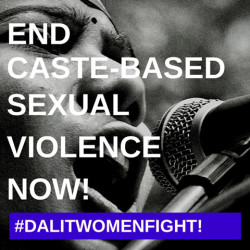 The event was a powerful reminder of governmental and widespread community silencing of Dalit women’s voices as a continuous and systemic pattern. For example, many of the media cases reported about sexualized violence in India are about upper-caste women and do not discuss the pervasive violence against Dalit communities. As a South Asian community, we need to challenge this silence through speaking explicitly about this caste-based oppression and therefore raising the issue of caste-based violence to the forefront of our dialogue.
The event was a powerful reminder of governmental and widespread community silencing of Dalit women’s voices as a continuous and systemic pattern. For example, many of the media cases reported about sexualized violence in India are about upper-caste women and do not discuss the pervasive violence against Dalit communities. As a South Asian community, we need to challenge this silence through speaking explicitly about this caste-based oppression and therefore raising the issue of caste-based violence to the forefront of our dialogue.
To contribute a donation to the campaign and support the organizers of #DalitWomenFight, please go to this link: https://www.fracturedatlas.org/site/fiscal/profile?id=4948.
For further updates on this campaign, you can follow the twitter @dalitwomenfight and hashtag #DalitWomenFight, as well as visit this website.
 Author Bio: Uma Venkatraman is a graduate of Oberlin College, with an emphasis on Gender Studies and History. She is originally from Massachusetts and recently completed a project studying histories of South Asian feminist activism in Boston, MA. Through this project, she sought to highlight the deep histories of South Asian feminisms that are repeatedly marginalized in mainstream feminist dialogue. Uma is focused on survivor support and has worked as an advocate and as a peer counselor for several years. She is specifically invested in working with queer communities/communities of color and seeks to place violence prevention and survivor support work within the broader context of anti-oppressive organizing.
Author Bio: Uma Venkatraman is a graduate of Oberlin College, with an emphasis on Gender Studies and History. She is originally from Massachusetts and recently completed a project studying histories of South Asian feminist activism in Boston, MA. Through this project, she sought to highlight the deep histories of South Asian feminisms that are repeatedly marginalized in mainstream feminist dialogue. Uma is focused on survivor support and has worked as an advocate and as a peer counselor for several years. She is specifically invested in working with queer communities/communities of color and seeks to place violence prevention and survivor support work within the broader context of anti-oppressive organizing.

